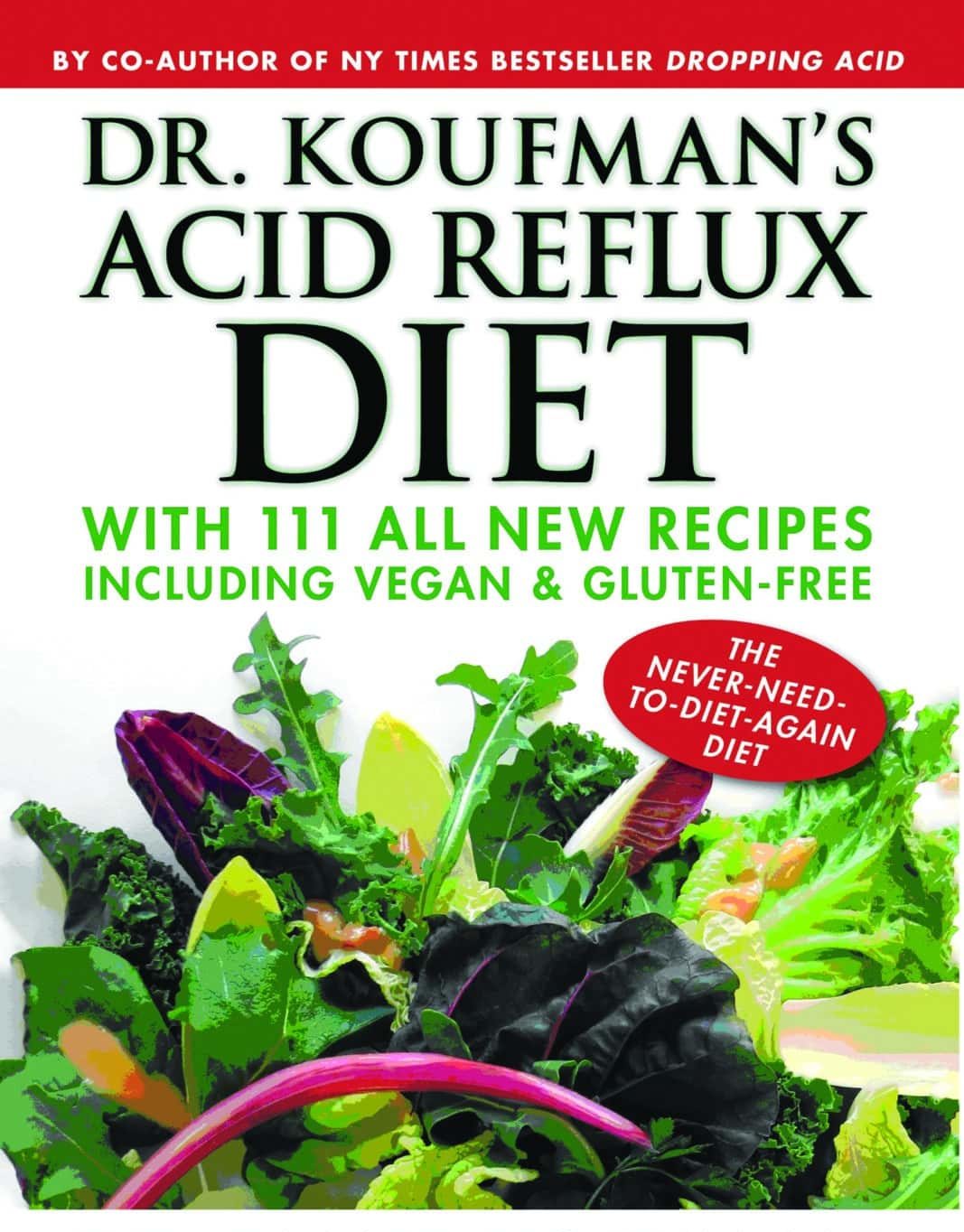At-A-Glance
- The Western (American) Diet contains excessive amounts of red meat, high-fat dairy products, sugar, and processed food, which unquestionably causes many of our most common chronic diseases, including obesity, heart disease, and stroke … as well as acid reflux (LPR and GERD).
- Fad Diets? Most fad, including weight-loss diets (e.g., South Beach, Paleo Juice cleanse, Ketogenic) are half-baked, attention-grabbing, one-idea gimmicks and opinions of unscientific “nutritional” influencers. Most such diets are unsustainable, with no real health benefits.
- Veganism, now gaining popularity, is different; it is the world’s healthiest sustainable diet. But people ask if vegans get enough proper nutrition? Yes they do. In nature elephants, giraffes, rhinos, and many other animals are exclusively plant eaters; and they’ve been doing just fine for millions of years. In addition, agriculture (mostly animals) contributes 14% to global warming, so in addition to improving peoples’ health, veganism could help save the planet.
- What Is the Best Reflux Diet? Since the big risk factors for acid reflux are obesity and an excessively-acidic, high-fat diet, I suggest a Vegan or Vegetarian Diet. Vegetarian is a modified vegan diet that I like to call Chegan (cheating vegan). Thus, the best reflux diet (and for your overall health) is a low-acid, calorie-restricted, vegan diet … but Vegetarian (“Chegan”) will do … it’s a whole plant-based diet with the addition of eggs, low-fat dairy, fish, and poultry.
- Eat Lean, Clean, Green, and Alkaline. Lean = Low-fat with special avoidance of saturated fats. Clean = No harmful chemicals; read labels. If you cannot pronounce a food additive and don’t know what it is, it is probably harmful; Google it! Green = As implied … vegetables are king. And finally, Alkaline = Avoid consuming anything pH <5, nothing bottled or canned beverages (except still water) … and no late night eating.
The Western (American) Diet Is Bad For Reflux; Causes Other Bad Diseases, and It’s Bad for the Planet, Too!
The China Study, a revolutionary work by Drs. Colin and Nelson Campbell, showed a causal relationship between a mainly-animal-product diet and the development of chronic diseases such as heart disease and diabetes, as well as breast, prostate, and bowel cancer. And, over the years since The China Study was first published (2004), the Campbells have shown that chronic diseases can be reversed; see The China Study 2016 revised edition and www.NutritionStudies.org.
If you have not already seen them, watch Forks Over Knives(on Amazon Prime) and What the Health (on Netflix). I strongly urge you to watch both!
Go Vegan and Help Fight Global Warming! Veganism is a good idea for many reasons, one of which: It can help save the planet from global warming. According to the EPA, in 2020, greenhouse gas emissions from agriculture in the U.S. accounted for for 11% of the total; and according to the U.N. Food and Agriculture Organization, livestock is responsible for 14.5% of greenhouse gas emissions; and 80% of comes from ruminants., notably, methane produced by livestock. (Methane is 80 times more warming than carbon-dioxide.) The problem is cows, and this problem would go away, if we stopped eating meat.
It is also important to point out two vital facts: plants produce oxygen and consume carbon-dioxide, thus biologically combat global warning and global veganism could alleviate word hunger; we could easily feed the world a plant-based diet with the available resources.
For My Reflux, Should I Go Vegan or Vegetarian (“Chegan”)?
There is no hard line: A vegan diet excludes all meat and animal products; whereas a vegetarian diet (which prohibits meat) may allow eggs, dairy, and sometimes fish and poultry. So, a vegetarian diet is a “Chegan Diet.” Personally, I really like the word Chegan (cheating vegan) as an alternative to the term vegetarian.
For my reflux patients, I recommend strict vegan diet to start, but when it comes to long-term reflux management, vegetarian/chegan will do … mostly a whole plant-based diet and low-fat dairy, fish and poultry. The dairy issue — Avoid or limit high-fat products; for example, grated parmesan cheese on pasta for added flavor is fine, but eating a big wedge of triple-crème Brie is not.
For the Reflux Diet, What Can and Can’t I Eat?
It depends “where” you are in your reflux treatment program, that is, in which phase of the Reflux Diet: Induction (Detox) Diet, Transition, or Maintenance Diet. For most refluxers, you need to start with Induction. The idea is that if you can stop reflux completely for a period of weeks (and wash out tissue-bound pepsin), you can heal, restore normal physiology, that is, reestablish normal anti-reflux defenses; see also Dropping Acid: The Reflux Diet Cookbook & Cure.
I now recommend a 3-week to 3-month Induction Phase, and during this period, consume nothing below pH 5. You may want to get some pH-paper to be able to check things.
Vegetarian Reflux Induction (Detox) Diet: What You Can Eat (If you are vegan, avoid Items with asterisks*)
Agave
Artificial sweetener (max. 2 teaspoons per day)
Avocado
Bagels and (non-fruit) low-fat muffins
Basil
Banana (great snack food)
Beans (black, red, lima, lentils, etc.)
Bread (especially whole grain and rye)
Caramel (max. 4 tablespoons per week)
Celery (great snack food)
Chamomile and/or ginger teas (other herbal teas are not acceptable)
Chicken* (grilled/broiled/baked/steamed; no skin)
Chicken stock/bouillon*
Coffee (max. one cup per day; best with milk)
Egg whites*
Fennel
Fish* (including shellfish, grilled, broiled, baked, steamed)
Ginger (ginger root, powdered or preserved)
Graham crackers
Herbs (excluding all peppers, citrus, garlic, and mustard)
Honey (Manuka honey preferred)
Low-fat milk (cow,* soy, or almond milk)
Melon (honeydew, cantaloupe, watermelon)
Mushrooms (raw or cooked)
Oatmeal (all whole-grain cereals)
Olive oil (unlimited amount)
Oregano
Parsley
Popcorn (plain or salted, no butter)
Potatoes (all of the root vegetables except onions)
Rice (healthy, especially brown rice, is a staple during induction)
Soups (homemade with noodles and low acid veggies)
Tofu
Turkey breast* (organic, no skin)
Vegetables (raw or cooked, but no onions, tomatoes, garlic, or peppers)
Vinaigrette (max. 1 teaspoon per day; you must toss salads … only acid allowed during detox)
Whole-grain breads, crackers, and breakfast cereals
Reflux Induction Diet: What You Cannot Eat
Citrus (e.g. orange, grapefruit, lemon, lime, etc.)
Onions (e.g., including scallions, shallots, chives, leeks, etc.)
Apple cider vinegar
Pepper (seasoning)
Bell peppers
Nuts
Garlic
Chocolate
Alcohol
Seltzer
And, no other beverages from a bottle or can (except still water)
The Transition Reflux Diet
After the Detox Phase, foods and beverages can be reintroduced one at a time. If you noticed the good list, the only fruits allowed during detox are melons and bananas. Fruits and vegetables with “medium acidity” can be introduced during transition, including pears, red apples, dates, and figs, but acidic items such as pomegranate, strawberries, and citrus should be consumed only occasionally, and then with alkaline water as a chaser. The same is true for nuts, but not all nuts are created equal; almonds, pistachios, and walnuts are okay for most people, but cashews and macadamia nuts should generally be avoided.
Regarding potential trigger foods, they should also be introduced one at a time; for example, do not cook a dish with onions, garlic, and green bell peppers all together, because if you get reflux, you will not know which food(s) is/are the trigger. The details of Transition and Maintenance Phases are beyond the scope of this post; however, they are best covered in Dr. Koufman’s Acid Reflux Diet.
What Is pH-Balancing?
Once you leave the detox program and add more acidic foods/beverages, remember, you can combine such with alkaline ones. Also, you can drink alkaline water after consuming an acidic item. That said, bottled and canned beverages (e.g., fruit juices, seltzer, soda, energy drinks, etc.) are never okay for the refluxer; they are just too acidic … most are in the pH 2.5 to 3.9 range.
Should I Go Dairy-Free and/or Gluten-Free? No, not necessary … unless you have an apparent gluten or dairy sensitivity. I have psoriasis, for example; if I eat gluten, my psoriasis gets worse. So, if gluten causes you to have symptoms, especially gastrointestinal symptoms, you should avoid it … and perhaps even be evaluated for Celiac Disease.
What Else Should Be Part of My Reflux Dietary Program?
For reflux treatment, I recommend a Reflux Detox Diet for the first three weeks to three months. This topic is well-covered in this blog and in my book, Dropping Acid. The main ideas: Avoidance of all highly-acidic food and beverages, consume a low-fat diet, and abstain from the common reflux trigger foods such as onions, garlic, tomatoes, peppers, chocolate, and alcohol.
Dr. Koufman’s Acid Reflux Diet should be considered a companion book to Dropping Acid as it covers the Transition and Maintenance Phases of the Reflux Diet and it includes terrific vegan and gluten-free recipes; the book offers the never-need-to-diet-again diet.
One of the most important elements of my reflux diet is no late night eating. In fact, during the Detox Phase, I suggest no eating within five hours of bed. That’s so you go to bed with an empty and quiet stomach; also see my New York Times Op-Ed The Dangers of Eating Late at Night.
Finally, one of the hardest parts of treating people with reflux is that everyone is different. A reflux trigger food for one person may not be a trigger for another. Here’s an example: Banana is a non-acidic, good-for-reflux fruit; however, banana may be a trigger food for about 5% of people.
If you awake in the morning with symptoms, replay the video of what you ate the night before. Pay attention to your symptoms and to your diet. This sleuthing takes time; it may take a year for you to figure out if you have specific idiosyncratic trigger foods, as it’s all trial and error.
So, is a vegan diet good for acid reflux? Yes! I advocate a vegan or vegetarian diet as sustainable and “best” for people with acid reflux, actually for everyone … go Chegan!
_________________
Sidebar: In 2005, I was a 200-pound, sugar addict with high blood pressure and very high cholesterol (level almost 300). But after I read The China Study and went vegan, everything changed. I enjoyed finding new foods and cooking again. Indeed, I cooked extra food that I could take to work twice a week. (Never cook for just one meal; make extra for consumption later.)
For 3 years, I was a strict vegan, and it still took me many months to lose all the excess weight. Later, I became chegan … and I still am. My diet is mostly whole plant-based with some eggs, low-fay dairy, fish and poultry. Incidentally, this modified diet makes it a lot easier to eat out in restaurants. Today, my weight is 148 pounds, as has been the case for more than a decade … and I am almost 5’10” … this is my ideal weight. Also, my blood pressure and cholesterol are flat normal. (BTW, the topic of Sugar Addiction will be covered in a blog later this year.)
In 2017, on the 100th Anniversary of the American Broncho-Esophagological Association (ABEA), I won the ABEA’s prestigious Chavalier Jackson Award; and that same year, I endowed The Jamie Koufman Lectureship on Reflux, Nutrition, and/or the American Diet. The following year, the First Jamie Koufman Lecturer was Dr. Colin Campbell.
Opinion: Should Dr. Colin Campbell win the Nobel Prize in Medicine, a paradigm shift would occur in both the healthcare and food industries; I hope this happens.









